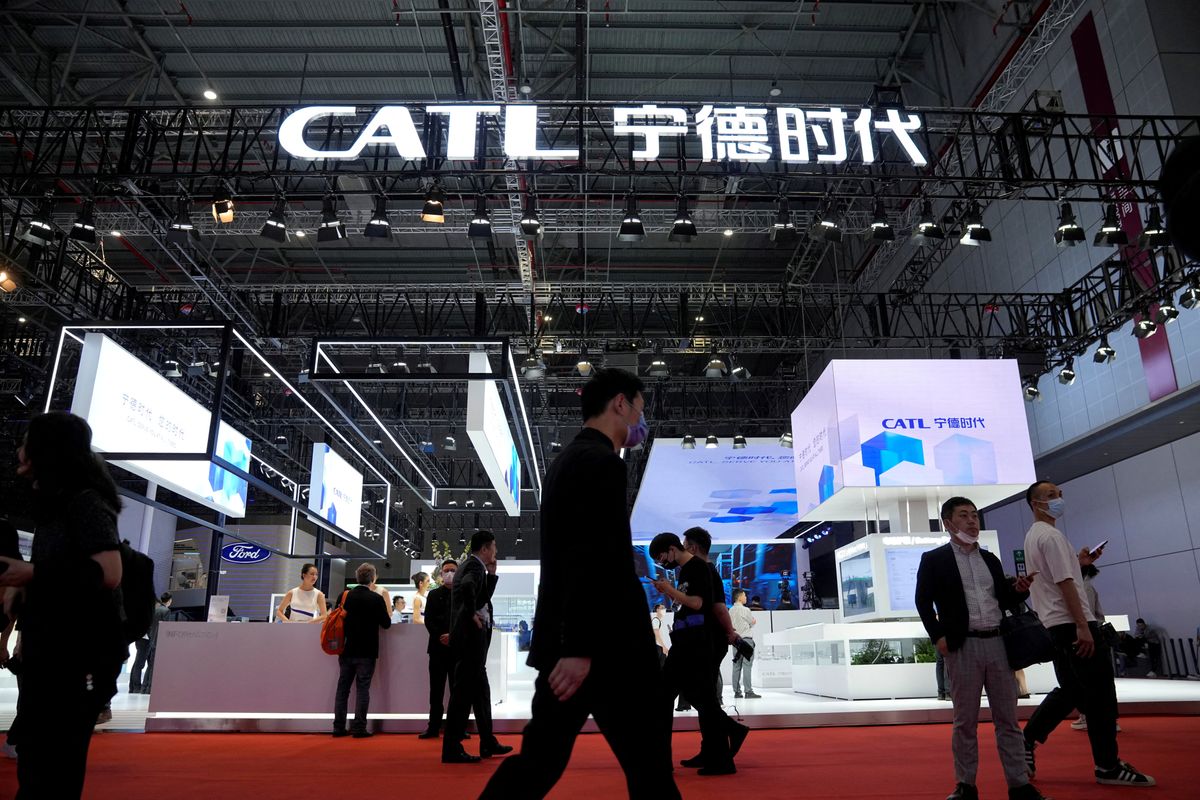How China's investing in South Korea's EV battery industry
In the last four months, Chinese companies have been eyeing South Korea's battery industry.

A few minutes every morning is all you need.
Stay up to date on the world's Headlines and Human Stories. It's fun, it's factual, it's fluff-free.
The backstory: In the world of electric vehicle (EV) battery manufacturing, China is the go-to supplier for South Korea's domestic battery industry. The world's second-largest economy has been shipping the country crucial materials like lithium hydroxide, cobalt and graphite at impressive rates. It also dominates the supply chain for cathodes, anodes and precursors, all important EV battery components, for Korea’s three main EV cell manufacturers. But, this reliance on Chinese imports is causing some concerns for the country’s battery makers.
You see, the US passed the Inflation Reduction Act (IRA) last August. This act is offering tax credits to EVs assembled in North America as an incentive to boost domestic production and reduce the country’s reliance on China in the supply chain. But to be eligible for those incentives, vehicles must source at least 40% of the battery’s minerals from the US or countries with free trade agreements. And in 2027, that requirement will shoot up to 80%. Plus, the IRA requires 50% of the value of the components in the battery to be either made or assembled in North America.
So this is making things challenging for Korean battery manufacturers that depend on Chinese minerals for their products. They're trying to diversify their sources but also need government support to boost battery exports to the US.
More recently: South Korean battery manufacturers have been getting proactive, forging partnerships with companies from other countries to source the materials they need. For example, South Korea’s LG Energy Solution made deals with a US firm for lithium carbonate and an Australian company for natural graphite. Meanwhile, SK, the battery-making arm of SK Group, has set up long-term contracts with companies in Australia and Chile to make sure it has a steady supply of lithium. Samsung SDI also teamed up with a local company called ECOPRO BM to build a cathode material factory in North Gyeongsang Province.
The development: In the last four months, Chinese companies have been eyeing South Korea's battery industry. They're looking to use South Korea as a gateway into the US market by leveraging South Korea's free-trade agreement with the US. These companies have announced investments totaling over US$4 billion to establish five new battery factories in Korea. The thing is, if these battery components are produced within Korea and later installed in North America, they may meet those IRA requirements for the tax breaks.
These deals involve joint ventures between South Korean firms and China's Ningbo Ronbay New Energy Technology, Zhejiang Huayou Cobalt, Green Eco Manufacture and CNGR Advanced Material.
Key comments:
“The product produced by the company’s Korea base meet the relevant requirements for qualified key minerals in the IRA bill and can enjoy the benefit of tariff policies when exporting to European and US markets,” said Ronbay New Energy last week.
“We will continue to assess and respond to any national security concerns associated with both international and domestic supply chains,” said Ashley Schapitl, a spokeswoman for the US Department of the Treasury.
“China and South Korea, we need each other,” said Lee Myung-kyu, an official at the Korea Battery Industry Association in Seoul. “Korean cell makers feel it’s risky to import battery materials like cathodes and precursors from China due to the IRA. If those raw materials are all made in South Korea, that means Korea will have a more stable supply chain in the country.”
“The US can’t exclude Chinese firms from EV supply chains,” said James Oh, vice president at Seoul-based battery research firm SNE Research. “If they ban Korea-China partnerships, the US will never be able to make EVs.”




Comments ()